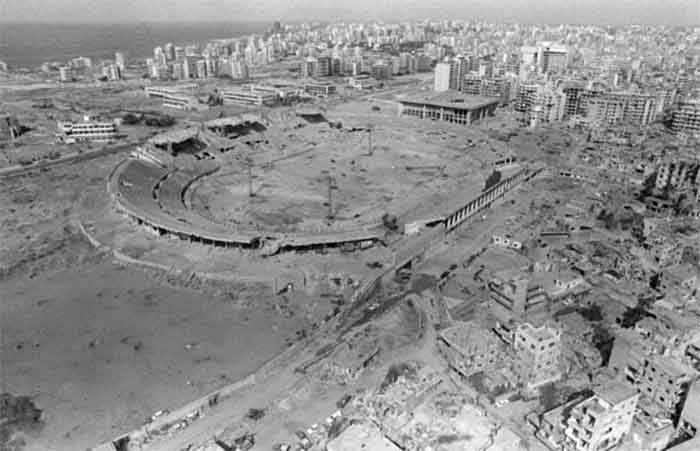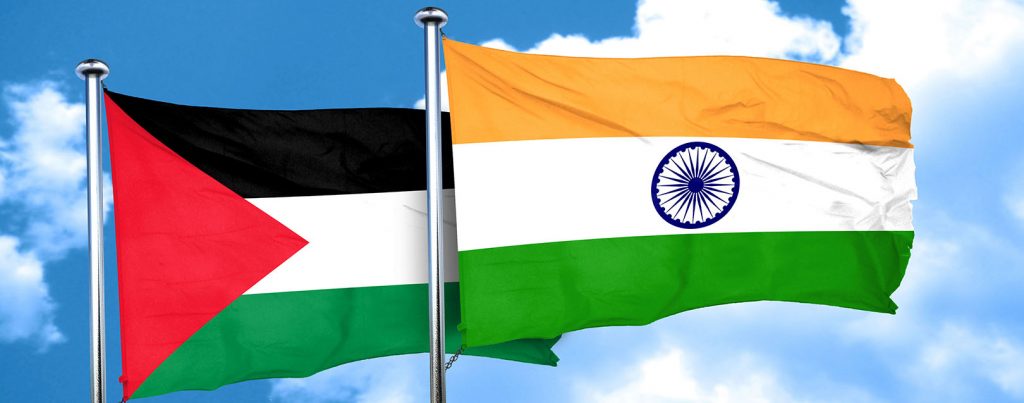
We were in a Lebanese village where all of us who came from the Burj shimali camp gathered in one room. The Zionist army treated the Lebanese in that period well, intending to win the sympathy of the Lebanese people. But this changed after some time when the Lebanese realized that Israel’s goals were far beyond eliminating the PLO. Indeed after few months the Lebanese resistance began to hit the Zionist invaders.
Abu Rami, who died years later, knew a Lebanese man.
This Lebanese man loves singing and humor, which made us forget for a short time the catastrophe we live in. We used to visit him in the evening, but once we go back (home) to sleep with dozens of people in the narrow room we remember our bitter reality.
We lived in anxiety every day and did not know our fate. We used to hear all the rumors about the arrival of the Israeli army to this or that area and the arrest of people.
We know from the old Palestinians that when the Zionists occupy a country, they start killing whoever they see on their way to spread terror. This is what repeatedly happened in Palestine in 1948, intending to terrorize the population to leave.
One of the stories I heard took place in the village of Salha in the Galilee in 1948; they lined the young people on the wall and shot them.
I had a dreadful feeling of being lost. Perhaps it was the first time in my life that I felt that the world was so small despite the large geography.
One day Abu Rami suggested we go to a nearby village because he knows the Mukhtar of the town, and the Mukhtar in a village is the symbolic representative of the state. Abu Rami worked with his father in asphalting the roads, so he knew the area well and had acquaintances there. Abu Rami knocked on the Mukhtar’s house, and his wife opened the door; she looked at us and said that the Mukhtar was not there.
Abu Rami said that he is confident that the Mukhtar is at home, but he does not want to receive us because receiving a Palestinian has become a scary matter for the Lebanese. This is undoubtedly due to the Israeli propaganda to frighten the Lebanese.
We walked between the olive groves, and there I was thirsty. I saw a woman with black clothes, and I went to ask her about water. I tried to imitate the Lebanese dialect, but the woman knew that we were Palestinians and not Lebanese. She gave us water and asked us to leave at once because Israelis were earlier in the village.
We passed near a cemetery, and one commented that the dead people are lucky that they are not in this hell?
We went back again to the village we were in. We were five people. Abu Rami , and Abu Issam the UNRWA health official in the camp. He is a gentleman with a bourgeois appearance and still maintains his elegance despite everything that happened. And Naief a blacksmith who enjoys good humor and was making jokes most of the time. And Nazmi worked as a teacher in the United Arab Emirates and arrived in Lebanon to spend his summer vacation three days before the invasion.
Despite the tragic situation, we laughed as we watched Nazmi in this situation. He was still in state of shock, and he said, “People, last week I was sitting in a beautiful café in a hotel in Dubai, and now I find myself running from place to place.”
We lived in fear and worry all the time. We hear rumors about the impending arrival of the Israelis, and we also heard that the Israelis entered the camp and arrested many people.
The next day, after spending about ten days in the Lebanese village, we thought to cross the mountains, heading towards an area close to the Syrian border, which the occupation did not reach. We walked upwards on the hill, and it was easy to fall at any time, so we had to walk slowly.
We walk with the feeling that we live in a world where there is no morality or conscience. It a very terrible feeling.
The Israeli planes were passing over us, and we hear the sounds of bombing planes, and we thought sometimes that they might shoot us. After about 7 hours of exhausting walking, we arrived on the outskirts of a Lebanese village, and there we saw an Israeli military column of tanks advancing towards the village.
It was a frustrating view. We decided to go back to the village because we had no other choice.
Salim Nazzal is a Palestinian Norwegian researcher, lecturer playwright and poet, wrote more than 17 books such as Perspectives on thought, culture and political sociology, in thought, culture and ideology, the road to Baghdad. Palestine in heart











































